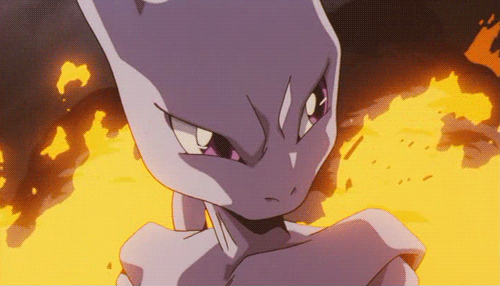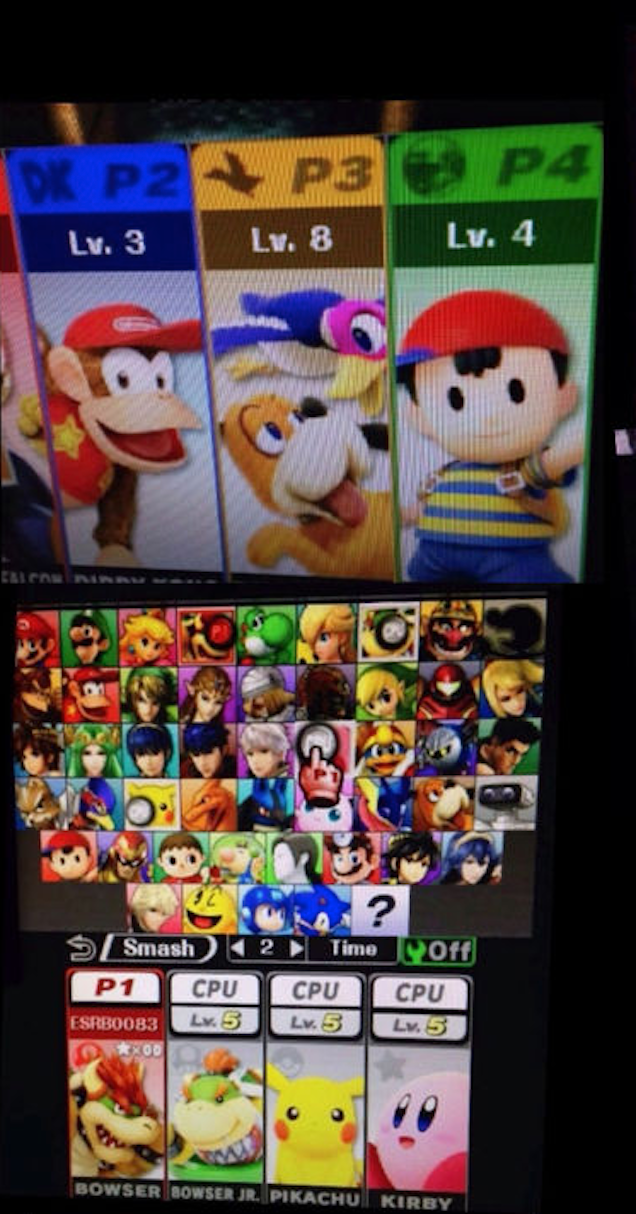It's fine if you think the arguement is meaningless. It probably was. But if you feel so strongly that way, why even say anything? The debate was more for fun than anything. At least I've been contributing actual information to the topic of discussion, rather than constructing an incredibly poor devil's advocate arguement based on absolutely nothing that is so incredibly unlikely it hurts. Yeah I can't be 100% certain of this. But you can rarely ever be 100% certain of anything, and you'd be hard pressed to find any subject that requires 100% accuracy to say that something is proven
I don't get why you turn on the aggressive switch when I was responding to the other guy, but whatever.
What you said was p (DKC sold 9 millions). Then you surmised that p -> q (More people played DKC than a Metroid Game). And that q -> r (K.Rool is thus more iconic). Now, q-> r is flawed enough, but I have no interest in that part of the equation.
What I had a problem with, as a student of logic, was p -> q. So many things could instead point toward ¬q. I constructed a quick argument. Probably spent too much time on it even, could have been more concise, just to quickly show how given the absence of metric, one could say anything. "BOO, YOUR ARGUMENT SUCKS, GO HOME, STRAWGRASPER.", said the other.
Well golly gee. Now I find myself entangled in this, while all I wanted was a bit of logical discourse. That'll teach me to try and find that on a friday night.
Given how the absence of metrics is apparantly not a problem for one to construct an argument, allow me to construct some of my own at times.
I will now embrace Weekend SmashGAF. Lord have mercy.
Argument #1.
Now, it is known that DKC was a huge seller. Around 9 millions copy sold total. However, while DKC2 and DKC3 were still resounding successes, they failed to sell as much. Why is that? According to the
two Wiki sources cited here, DKC2, in fact, sold
50 % less than DKC, around 4.37 millions between Japan and US. Europe is sadly missing.
On the Wiki page for DKC3 (and absolutely unreliable since it's missing any source at all), it is reported that "the game went to sell 2.89 million copies worldwide", which represents 66 % of what DKC2 achieved. The fall is tremendous.
No immediate number comes up for DK64. Given its necessity for the expansion pack, coming up late in the N64 lifespan and Nintendo being at a disadvantage that generation against Sony, however, I do not think the numbers would show a supreme resurgence of any sort. Good sales though, that's for certain. I would love to find something on it, but alas it doesn't seem to come up easily on Google, and truely this is already going to be long enough,
so I will not consider DK64 for this brief review.
So what could be the explanation here? Why DKC1 sold so much and yet the brand steeply dwindled down, even with DKC2 (considered to be superior by far to DKC1 by many)? Allow me to suggest a hypothesis. DKC1 graphics were groundbreaking, at the time. A commercial push was made. People were wowed. Boy, did it look pretty. People bought it. Many buyers never touched a platformer again.
(K.Rool Appearance count : 1)
DKC2 comes around. The actual fans of the first game are pleased. They buy the game. However, 4 millions players (if not including little brothers or family that played the game together) never set foot in it compared to DKC1. Let's say that these 5 millions-ish players represent the core DKC fanbase, the ones who started with DKC, liked it and wanted more.
(K.Rool Appearance count : 2)
DKC3 releases. By now, even fans are starting to see the rethreading of grounds. Even less buy the game, despite them liking Donkey Kong. (K.Rool Appearance Count : 3).
Now a question : who bought DKC3? Did anybody "start" with DKC3, then went back to DKC1, then DKC2? Or only established fans? The metrics doesn't say. I am going to assume here that people who were fans of DKC2 bought DKC3 (some of them, anyways),
But what is
being iconic means in regard to a video game character? Many interpretations would be right. (Clearly Sakurai doesn't care anyways and throw away this whole discussion we are having, because if Shulk or Ice Climbers were in Smash (RIP IC), he truely doesn't care about iconicity). For me, personally, in regard to a video game boss character, I would say that being iconic would be it taking part of at least
2 grand boss fights (elevated not solely by the character, but by the whole ambiance he presents : setpieces, music, story significance...). K.Rool fits. But how many players partook in 2 of K.Rool's boss fights?
We know it is not 9 millions. A reasonable guess would be any number between 2.89 millions (# of DKC3 copies) and 5 millions (# of DKC2 copies), ranging between players who defeated him in DKC1-2 and DKC2-3. Some probably killed him thrice, even.
Let us say that we consider that an average of 3.9 millions players would consider K.Rool iconic based on the premise of sales.
A far way down from the 9 millions, don't you think?
Argument #2
I promise this one will be shorter. It has been a while since I did a little expose though, so I'm having fun!

Let's construct this one around Metroid, addressing the hypothesis I made in my previous post for a change of pace. A personal experience mixed with gut instinct that I was not alone. And less numbers!
Ah, Metroid. A classic example of a series that despite all the critical acclaim it may get, doesn't get its just desserts in sales. DK surpasses it handily. DK had a better, more constant presence through Nintendo consoles and handhelds though, so I think it partly explains why : the brand was developped. It never skipped a generation like Metroid did. Super Metroid is acclaimed by many gamers - and I never understood why. I'm part of the problem myself : I don't understand what makes people so praising of it. Yet, I tried to play it. Many times. Never on the SNES, though, : always on the Wii or Wii U virtual console. Even in my adult years, I'm struggling to see what people see in it. It's no wonder my child self couldn't.
Metroid Prime, though. Oh, sweet, sweet Metroid Prime. A world of wonders. A first-person perspective. Exploration in lush environment. I loved every second of it. 100 % it.
And yet I still remember the surprise, sometimes rage of some, when they discovered that their series that had been MIA since SNES would be reborn as an FPS. Utter disdain.
Which I why I truely believe that you cannot apply the "sales figure" argument to Metroid. There was clearly a rift, between 2D Metroid and Metroid Prime, that was so clearly established to try and breath new life into this hard-to-sell series. It worked to a point. It convinced people like me to try it. They loved it. It convinced hardcore fans that Retro were crazy. They never bought it. Some loved both styles of Metroid. Bought it.
But who did and bought what, when, how? Alot of variables are at play. But what is clear is that people who were not interested in Metroid at all before, bought it because of Prime. Sales numbers are hard to find for the series, but
since Super Metroid was a Player's Choice, it is safe to assume it sold at least 1 million. Metroid Prime?
Over 2 millions.. A 100 % increase on its last game, obligatorily bringing some old fans of the game
but also at least 1 million new ones.
Ok, so great, we've established that the genre-divide helped bring alot of new fans previously unfamilar to Metroid to the series. But what of the "iconic 2 bosses fight" criteria we've put upon ourself earlier? One
big advantage that Ridley has (huehue...) is that he's in almost all of the damn Metroid games. If we take the peak of the Metroid series sale with Prime (going anywhere between 2 millions and 3 millions) and thus, we could make an argument that from Metroid Prime 1, players were either tempted to try the older Metroid (on the Virtual Console, for instance, or by hunting down a used copy of the SNES game ; or simply emulating it, which is never reflected anywhere) to give it a shot, or to buy one of the sequels when they eventually came out, or to try Zero Mission on the GBA. And thus, they fought Ridley at least 2 times. Unless they picked one of the rare games where he ain't there.
It would be difficult to put a number on that, though. I'm sure there's alot of players who picked up Prime 1 and never bothered to look either for its prequels or sequels as well. I think there's alot of fans like me who just waited till the Virtual Console came up and bought Super Metroid there, but you'll never see that in sales numbers either. Others' interest dwindled, but then "TEAM NINJA!? OH MY!" and boy, did they get surprised!
Nonetheless, by being cautiously optimistic, we could say that
2 millions (aka the floor for MP1 sales) players got to experience Ridley at least twice, somehow, somewhere in a Metroid game.
Sure, the 3.9 millions average we got in Argument 1 is still nearly double this guesstimate of 2 millions in Argument 2. Who won, Guesong? WHO WON?!
Nobody. We all lose. Two fantastic series, both with good claims on more Smash roster spots, but Sakurai does as he please, and we will take Shulk and like it.
However, me writing this whole thing never was about proving one side wrong or right, but simply taking a deeper look in the matter of DKC sales, about the number 9 millions, and the effect of genre-splitting on the consumer base, . It's never really black or white, there is always a deeper story than numbers. My analysis is barely scientific given the ressources I have. Nonetheless, this was a good exercise for me, and I thank Aaron and his friend for letting me have it. And if you are reading this, my thanks to you for reading my random thoughts! xD
TL : DR : Guesong goes the extra mile for WeekendSmashGAF.






